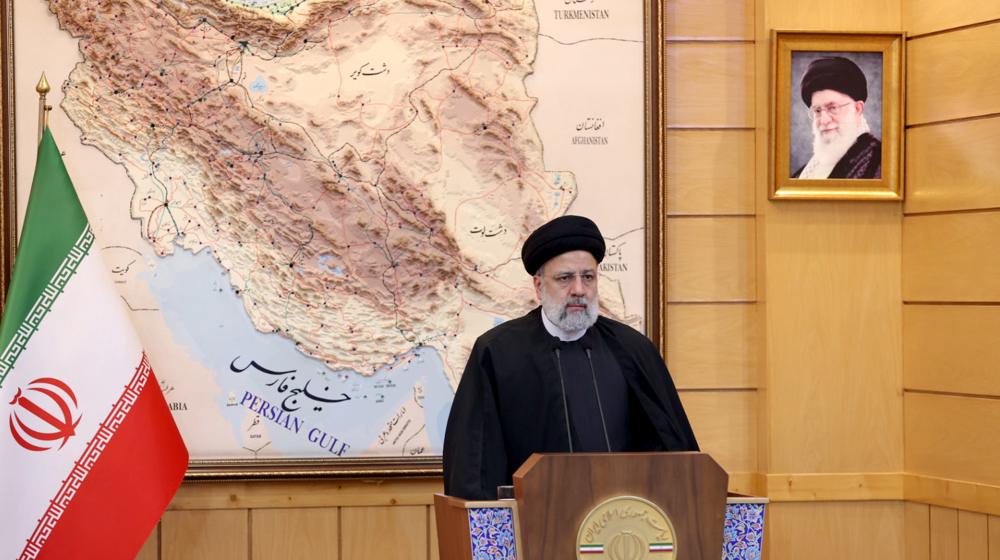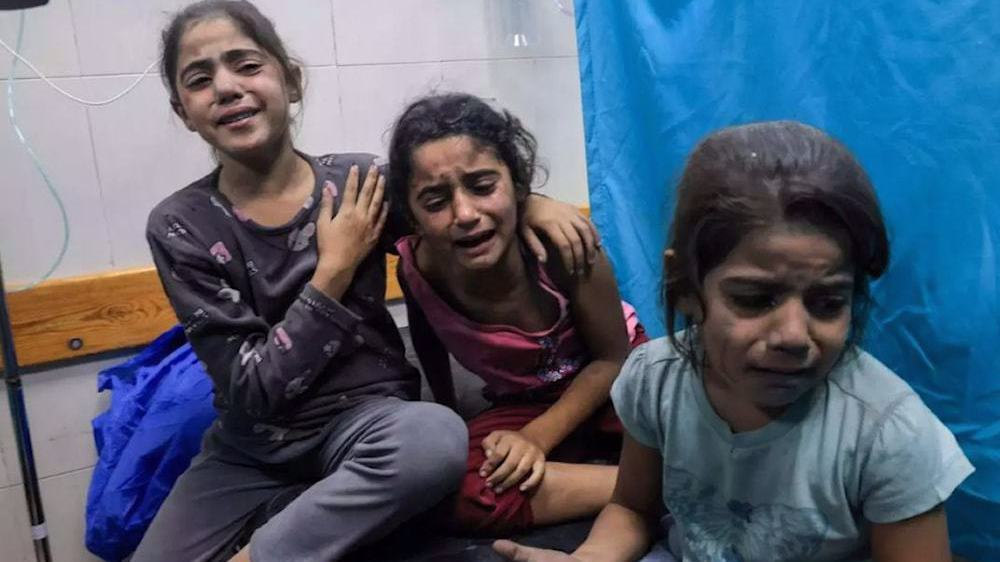Iran president says Palestine, swift end to Israel's Gaza war top of agenda of Russia visit

Iranian President Ebrahim Raeisi says the Palestinian issue and the brutal Israeli aggression against the Gaza Strip will be top on the agenda of his official visit to Russia.
Speaking to reporters before setting off for Moscow on Thursday, Raeisi said all Muslims and free nations are concerned about the current situation in Gaza.
He added that urgent efforts to stop the Israeli regime's bombing raids against Gaza, lift the blockade on the Strip, provide aid to the Palestinians in the war-hit teritory, and help the Palestinian people restore their absolute rights will be among other main topics to be discussed.
Iranian authorities have held talks with high-ranking officials from various countries about the Palestinian issue and Israel's ongoing onslaught against Gaza, which would be pursued during the visit to Moscow as well, he noted.
Israel launched relentless air and ground attacks on the coastal territory, including hospitals, residences, and houses of worship, since Palestinian resistance movements carried out a surprise attack, dubbed Operation al-Aqsa Storm, against the regime on October 7.
Since then, the Israeli regime has also imposed a complete blockade on Gaza, impeding the Strip’s access to food, water and medicine.
At least 16,248 Palestinians, including 7,112 children and 4,885 women, have been killed and more than 43,616 others injured in relentless air and ground attacks on the territory since the onset of the war.
Elsewhere in his remarks, Raeisi said the promotion of political, economic, trade, cultural and knowledge-based cooperation between Iran and Russia is also among other objectives of his visit, which is taking place at the invitation of Russian President Vladimir Putin.
The Iranian president emphasized that the exchange of delegations between Tehran and Moscow showed that the two sides have taken steps to further promote relations in a bid to serve bilateral and regional interests.
Iran and Russia have a common stance on peace and stability in the region, leading regional and extra-regional developments and the fight against unilateralism, he pointed out.
Raeisi said the Eurasian Economic Union, the Shanghai Cooperation Council and the BRICS group of emerging economies have prepared the ground for the expansion of Tehran-Moscow ties and relations with the regional and allied states.
On Tuesday, Iranian Foreign Minister Hossein Amir-Abdollahian and his Russian counterpart Sergei Lavrov signed an agreement in Moscow to make joint efforts to counter unilateral sanctions imposed on the two countries.

Iranian Foreign Minister Hossein Amir-Abdollahian has urged Egypt to "unconditionally" open the Rafah crossing to allow the Palestinian people in the Gaza Strip immediate access of to medicine, food, and fuel.
"It is highly expected that top authorities in Egypt will open the Rafah border crossing unconditionally to send medicine, food and fuel to the entire Gaza [Strip]," Amir-Abdollahian said in a post on X on Wednesday.
"Today, the eyes of the women and children of Gaza, who are without water, medicine, or food, are on the Rafah border and [they are waiting for] Egypt’s decisive decision," he wrote.
The Rafah border, located in the south of the Gaza Strip, is one of two main crossings for inhabitants of Gaza and the only crossing that is not directly controlled by the Israeli regime.
All goods and humanitarian aid cross through the Rafah border. But because of the blockade imposed on Gaza by Israel, the border has only intermittently been open to Palestinians.
Palestinians have accused Egypt of bolstering the Israeli blockade of Gaza by refusing to reopen the Rafah crossing.
Israel has launched relentless air and ground attacks on the coastal territory, including hospitals, residences, and houses of worship, since Palestinian resistance movements carried out a surprise attack, dubbed Operation al-Aqsa Storm, against the regime on October 7.
Since then, the Israeli regime has also imposed a complete blockade on Gaza, impeding the Strip’s access to food, water and medicine.
At least 16,248 Palestinians, including 7,112 children and 4,885 women, have been killed and more than 43,616 others injured in relentless air and ground attacks on the territory since October 7.
The Gaza-based Ministry of Health said Wednesday that a total of 800,000 Palestinians in the northern part of the besieged Strip are currently without health coverage.
The ministry warned against "acts of genocide committed by Israel in the northern Gaza Strip."
In a statement on X, the ministry spokesperson Ashraf Al-Qudra said the Israeli occupation deliberately aims to undermine health care infrastructure in northern Gaza.



Comments
Post a Comment